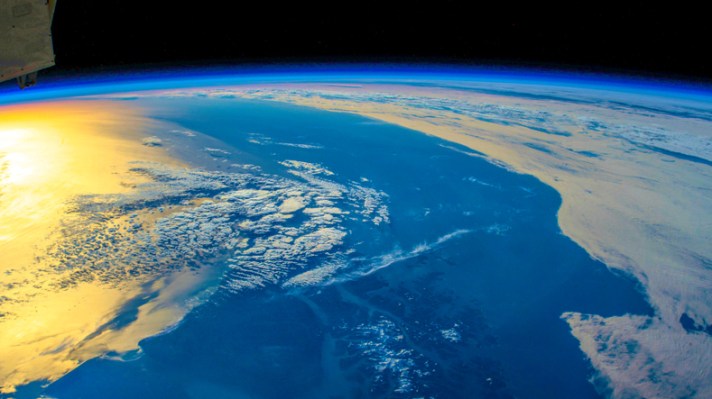Astronauts have been conducting experiments on the International Space Station for as long as the station has been in orbit, but astronaut labor is expensive: crew time costs $130,000 per hour, and companies are capped at 25 hours per year.
Frontier Space Technologies, a participant of the Startup Battlefield 200 cohort at TechCrunch Disrupt 2023, is aiming to solve this astronaut labor bottleneck with small, autonomous laboratories that can each host multiple experiments in microgravity at once — no human labor required.
The startup is a spinout from Cranfield University in the U.K. The technology behind the lab — aptly named SpaceLab — emerged out of a series of successful student projects, including the PhD project of the company’s co-founder and CEO Aqeel Shamsul.
The four-person founder team realized that the technology might have real commercial traction in 2021, after they were selected to fly a prototype of the lab on an atmospheric balloon. That flight was part of a program called REXUS/BEXUS, supported by the German Aerospace Center and the Swedish National Space Agency.
“We found out, hey, this proof of concept actually works,” Frontier co-founder and CTO Mateusz Zalasiewicz said. “Maybe this could be a real product. We got to speaking from there and decided we can give this a go. We’ll try and incorporate and see if we can commercialize this tech.”
SpaceLab is a small, 3U CubeSat that’s two-parts experiment payload and one-part interfacing bus. The core of the payload — and one of the startup’s key differentiators — is what’s called a “Multi-Chamber Sample Disc,” which is essentially a compact disc that can hold multiple samples at once, while keeping them all isolated from each other. Because they’re isolated, SpaceLab can independently manipulate each sample and essentially conduct multiple experiments simultaneously.
The disc rotates and aligns each sample chamber with a bunch of different sensors, depending on what the experiment calls for: fluorescence microscopes, which can be useful for biopharma applications; visible light spectrometry, to understand the chemical makeup of samples; a suite of environmental sensors, like accelerometers; and many others to ensure the laboratory environment has high fidelity for customers.
Frontier is aiming to launch its first on-orbit demonstrations in the fourth quarter of 2024.
The payloads for the first demonstrations are being developed in part through two grants from the U.K. Space Agency’s International Bilateral Fund, which the company was awarded in partnership with The Exploration Company, a French startup working on a reusable orbital spacecraft, and Sierra Space, which is developing a spaceplane and modular space habitats.
The company is hoping to launch multiple variants of SpaceLab, focusing one of those missions on protein crystallization and the other on live cell cultures. This latter mission is especially important as it will demonstrate that SpaceLab can fly live samples (and keep them alive upon their return to Earth).
Thus far, the company has raised $270,000 in grants and secured a contract with a first commercial customer. They are actively fundraising as they work toward their first demo mission.
